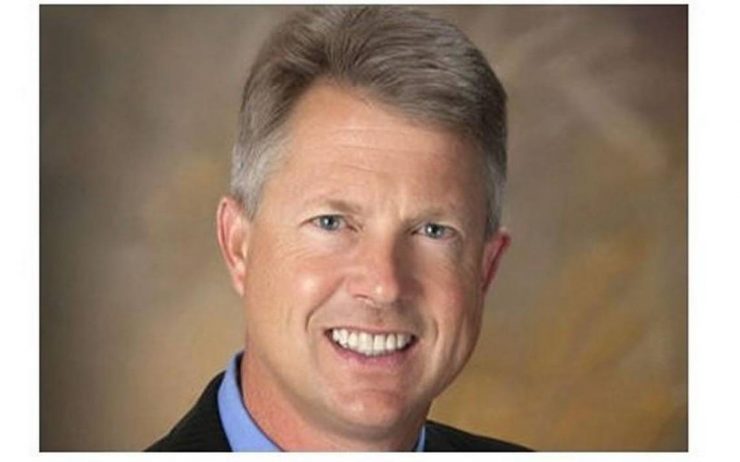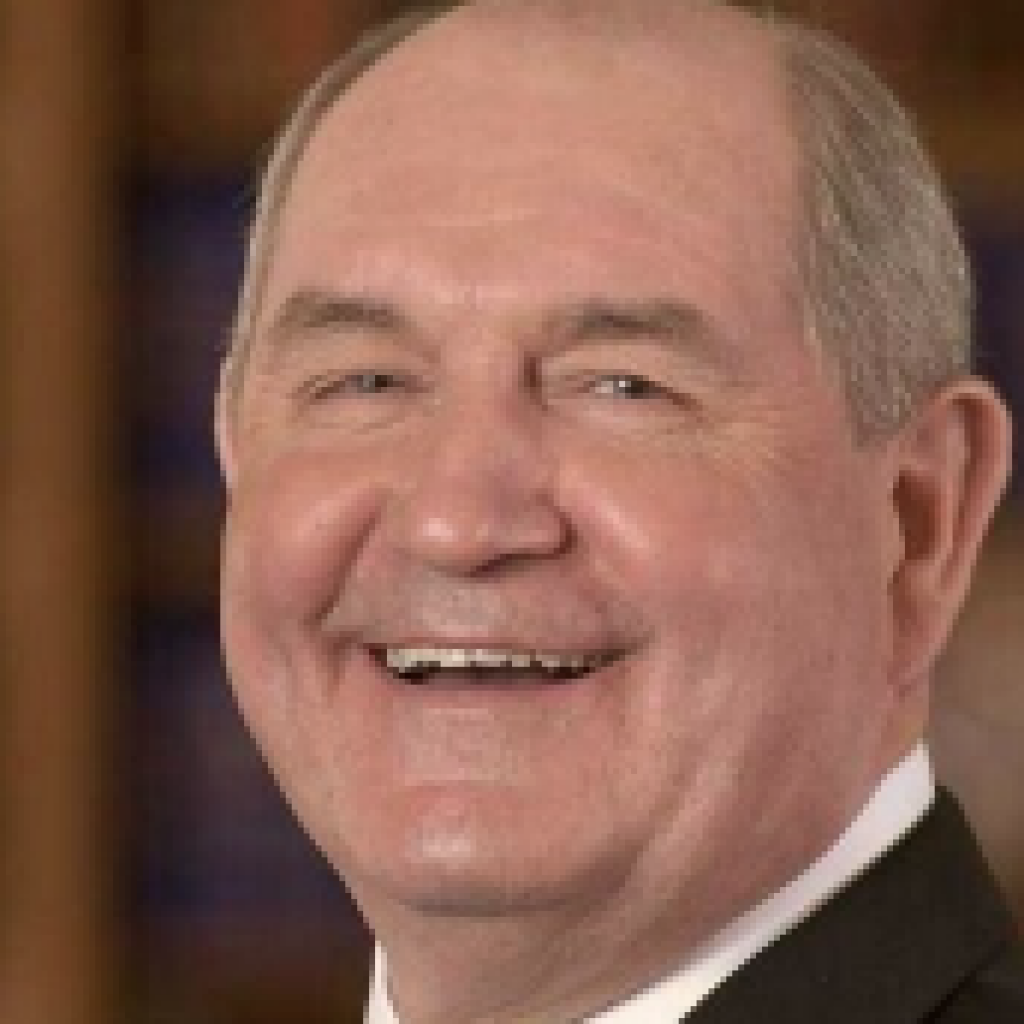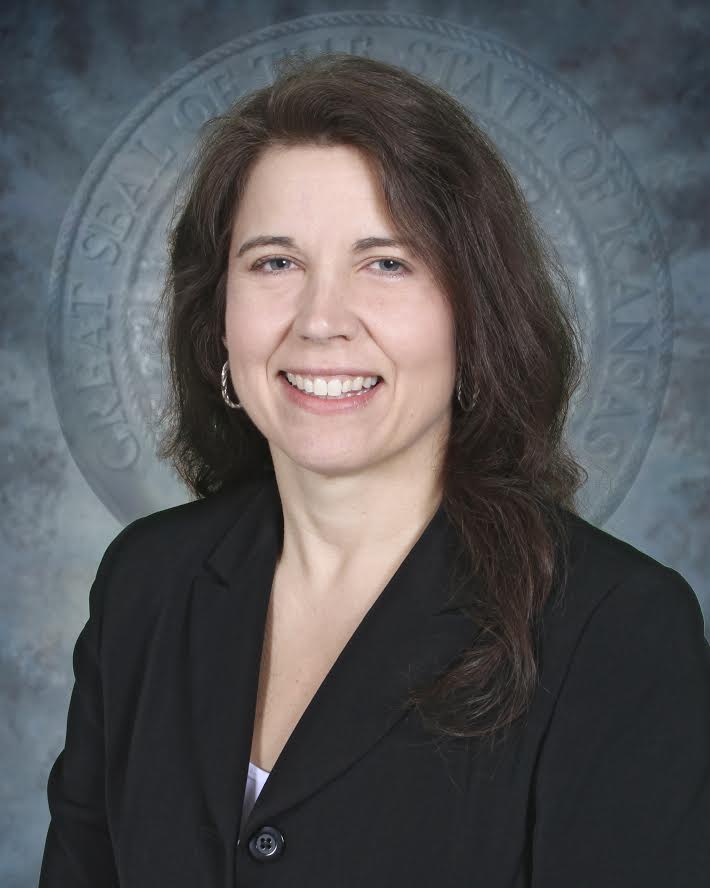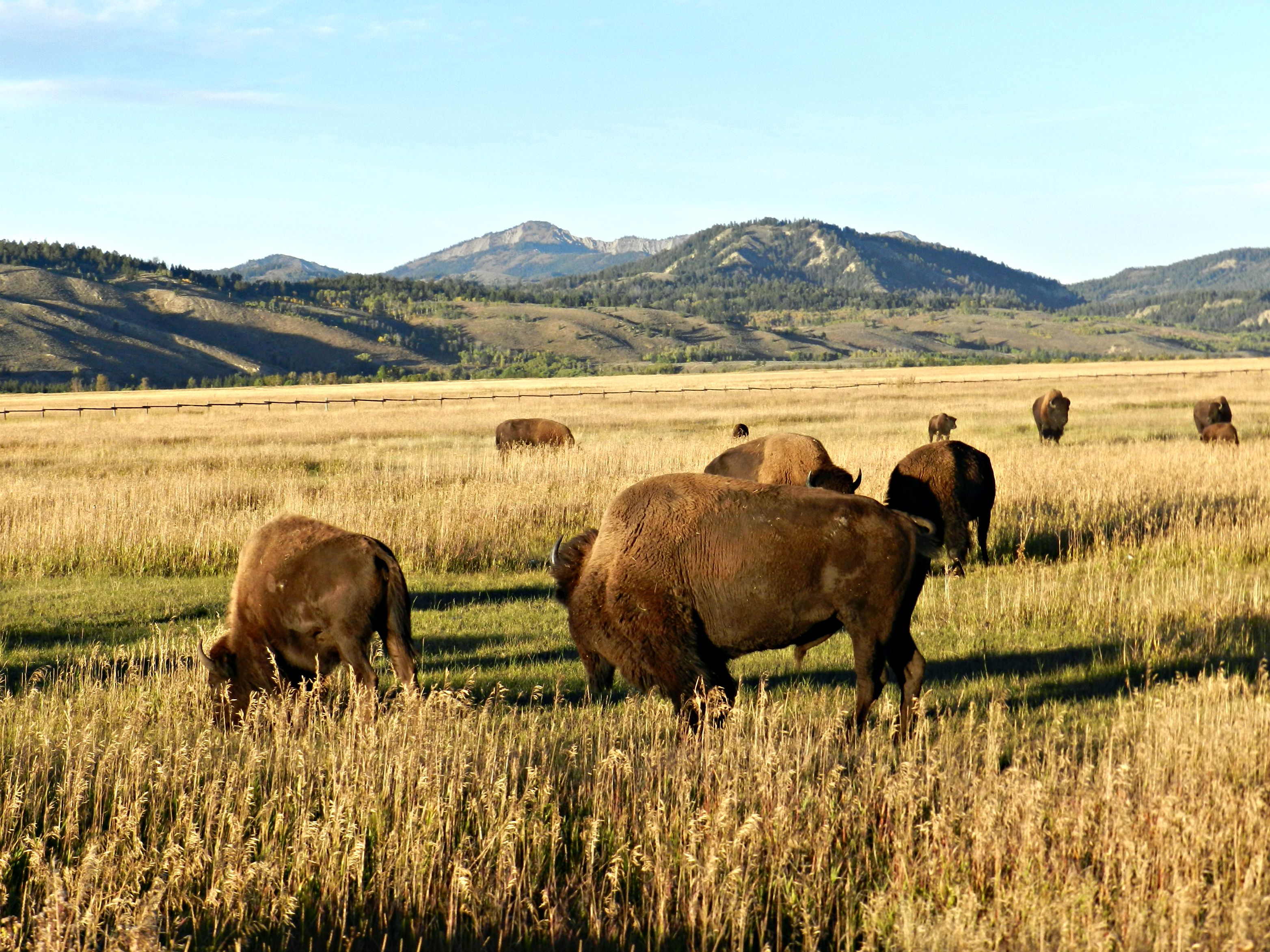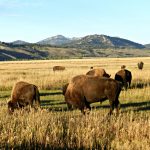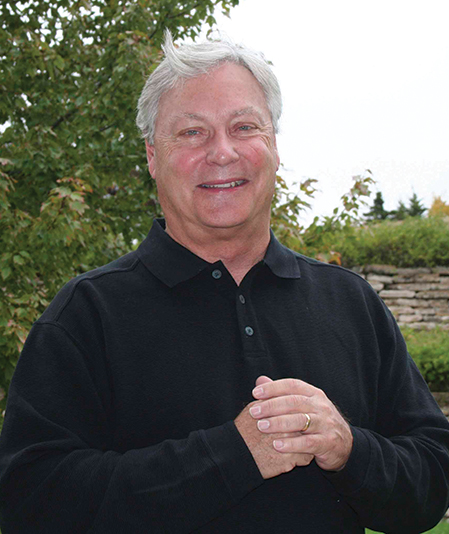[polldaddy poll=9654878]
Category: Editor’s Choice/Opinion
MARSHALL: Doctor’s Note Feb. 3

Big 1st Back On Ag Committee
Before I took this office, I committed to you to get the Big 1st a voice back on the House Ag Committee. It has been my honor to be selected to join the committee, and I commit to fighting for those issues and communities that make up the backbone of our district’s economy and culture.
This week, we met for the first time to have our organizational meeting, where we discussed how the committee will operate this session. In the coming months, we will take preliminary steps to craft the next Farm Bill, and hear from producers and industry experts from across the country to ensure that we are assisting our struggling agricultural economy. One thing you can count on – you will have a voice, and a say in the next Farm Bill.
From The Floor
I spoke this week from the House floor regarding DHS Fusion Centers, including the one in Kansas. Click on the video below to see the full remarks.
In The District
 Last week, I was able to travel back to the district to speak with several groups who are presenting exciting opportunities to our district.
Last week, I was able to travel back to the district to speak with several groups who are presenting exciting opportunities to our district.
I joined former Senate Majority Leader Tom Daschle, Kansas State University President Richard Myers, and others in participating in a Blue Ribbon Panel on Biodefense at Kansas State University (pictured right). We discussed the catastrophic consequences of not preparing for potential threats to our food system and agriculture industry, and the important collaborative work being done at the University. Senator Daschle called K-State “Silicon Valley for biodefense.”
I was also able to join the Manhattan Airport for the ribbon cutting of their new passenger terminal. The expansion makes the airport more user-friendly, and is a great example of collaboration at the local level – it added 42,000 square feet.
 One highlight was speaking to the Kansas Farm Bureau Young Farmers and Ranchers conference (pictured left). We addressed the importance of being involved and continuing to use their voice and passion for agriculture, and ag policy.
One highlight was speaking to the Kansas Farm Bureau Young Farmers and Ranchers conference (pictured left). We addressed the importance of being involved and continuing to use their voice and passion for agriculture, and ag policy.
Finally, I was honored to attend a reunion of veterans of the Battle of the Bulge (pictured below). Being able to hear their stories of heroism was a humbling experience, and one that reminded me of the importance of keeping these stories and memories alive. Our country has been truly blessed by Americans like these who have given so much for the many things we take for granted.
Roger Marshall, M.D., (R-Great Bend), is the First Dist. Kansas Congressman.
Moran’s Memo: Perdue is a strong choice for Secretary of Agriculture

By U.S. Senator Jerry Moran, R-Kan.
I come from a state where rural communities serve as the bedrock to our culture and economy. A place where the importance of local leaders – school board members, church deacons and hospital board trustees – is recognized and encouraged. A place where farmers and ranchers are held in high regard, not just for producing the safest, most affordable food and fiber in the world, but because of their work ethic, moral standards and decency. Family farmers and ranchers drive the Kansas rural economy, while at the same time, they rely on the crop protection specialists, local gas station owners, and rural energy providers to succeed. There is unique way of life that exists in rural America that has been passed down generations – a tradition that is worth of defending.
With this in mind, there are few cabinet positions that I am more concerned with than the selection for Secretary of Agriculture. Kansas farmers and ranchers are looking for someone who has his finger on the pulse of rural America, including volatile commodity prices and challenging weather conditions. The Ag Secretary ought to have a deep knowledge of production agriculture and an appreciation for the policies that provide a safety net and risk management tools for agriculture producers. Furthermore, this individual must oversee the many other functions of USDA beyond traditional farm policy, such as providing affordable rural housing, operating farm loan programs and expanding agriculture research efforts.

But not only does the Agriculture Secretary lead the implementation of policies within the USDA, they must also be willing to go to bat for rural America in all other areas of the administration. The Secretary of Agriculture must voice the significance of agricultural exports to the U.S. Trade Representative and Department of Commerce, the need for commonsense environmental regulations to the Environmental Protection Agency, and the importance of rural economic development to the U.S. Fish & Wildlife Service.
A high bar ought to be set for this – one that reflects the importance of its role to rural America. I look for someone capable of meeting the demands of the job who shows an unwavering commitment to farmers, ranchers and rural communities. I believe that Governor Sonny Perdue exceeds those standards and will prove to be an excellent selection for Secretary of Agriculture.
Governor Perdue’s background as a veterinarian, agribusiness owner and advocate for Georgia’s agriculture producers have given him the depth of knowledge about agriculture necessary to lead the USDA. In our conversations, he reinforced my long-held view that there are too few of us in rural America to be divided among ourselves by region, commodity or farming practice. Governor Perdue recognizes that a Kansas wheat farmer and Georgia peach grower share the same values and goals, namely having the opportunity to pass on a farming and ranching heritage to the next generation.
I look forward to supporting Governor Perdue’s nomination to be Secretary of Agriculture and working to advance our shared goal of defending and improving the lives of people in rural America.
SCHROCK: Kansas science teacher shortage grows

New teaching licenses issued by the KSDE for endorsements in secondary biology, chemistry, physics and earth science remain at levels about one-fourth of what is needed to replace retiring Kansas science teachers, a trend that began with No Child Left Behind 15 years ago.
Not all individuals who acquire teacher training enter the Kansas classroom. Some are site-bound with no vacancy in their local community. Others teach out-of-state or take another job. And the postponement of retirements during the 2008-09 recession has resulted in accelerated retirement rates now.
Biology needs over 200 new teachers-per-year. This last year, 36 graduated from college programs, seven transferred from out-of-state and 27 (mostly in small rural schools) added biology by testing out.
Kansas needs 120 chemistry teachers per year. Only 15 graduated from teacher programs while 29 current teachers added the field by testing-out.
Kansas never produced enough physics teachers (again 120, similar to chemistry). Only 13 new physics teachers were college-trained while 14 added physics by test-out.
Earth science is usually a high school elective but Kansas still needs at least 60 new teachers each year. There were eight new teachers with that endorsement last year while 24 added it by test-out.
It is unfortunate that KSBE approved adding endorsements by test-out since these teachers can pass with a Cliff’s Notes-type quick-study. They lack the laboratory and field work critical for a teacher to really understand the science and for a teacher to conduct lab and fieldwork with their students. Taken together there were only 72 new science endorsements issued from college programs while 94 teachers tested out. This trend will not last for long because there are a limited number of rural teachers who can add a science endorsement; that supply will soon become exhausted.
In response to a shortage that has spread to nearly all teaching fields, the KSBE provided a range of “alternative routes” to enter science teaching in Kansas, including transferring in from a science industry or having a STEM major and experience without any teacher training. So far we can count on one hand the science teachers who have entered by these alternate routes.
Not all fields have seen a dramatic decline. But young science teachers want to excite students with laboratory and field work. The enforcement of teach-to-the-test under NCLB has dramatically curtailed those practices, accounting for the strong decline in science teachers nationwide.
On August 8, 2016, a “Blue Ribbon Task Force on Teacher Vacancies and Supply” gave their report to the State Board. Unfortunately, they did not examine the numbers of new endorsements nor detect the dramatic drop off in student teacher candidates due to the removal of teacher tenure. One program with 15 students in the 4-year pipeline saw that number drop to seven overnight, immediately following the elimination of tenure.
One stopgap measure would be hire back up to 500 retired teachers and administrators, a practice currently made difficult and risky by extensive KPERS red tape. A bill scheduled to be introduced in the Senate this week would simplify this process, allowing schools to reimburse KPERS.
The Blue Ribbon report also dramatically underestimates the teacher shortage because it relies on self-reported data with is no on-site inspection of who is actually teaching in the classroom.
Our true Kansas teacher shortage is likely similar to the shortage in Oklahoma. Emergency teaching certificates awarded through December in Oklahoma were 1,082. Over seven percent of Oklahoma students are now taught by emergency teachers.
I asked my students why they were switching out of teaching. While the long-term decline was a response to the NCLB teach-to-the-test movement, the precipitous decline was “attitude.” For many, loss of tenure was the last straw. The lack of respect for teachers—evident in many legislative actions—will have to change. And while it used to be that when a student got into trouble at school, they also were in trouble at home, some parents now come to school to defend the misbehavior.
Kansas teachers lost tenure because some asserted that it was too hard to get rid of an incompetent teacher. But it merely takes a competent administrator to remove an incompetent teacher. The administrator then has to find a competent replacement. But thanks to the loss of tenure, there is no teacher surplus waiting in the wings.
Now That’s Rural: Russ Fulmer, Fulmer’s Kansas Premium Meats and Eatery

By RON WILSON
Huck Boyd National Institute for Rural Development
Quality: It’s defined by Merriam-Webster as “degree of excellence” or “superiority in kind.” One Kansas entrepreneur set out to achieve and share high quality with meat, and that has led to a unique retail store for Kansas products.
Russ Fulmer and wife Roxey are the owners of Fulmer’s Kansas Premium Meats and Eatery near Belvue. Russ is a third-generation farmer and cattle feeder in Pottawatomie County, so he knows first-hand the importance of feeding and handling cattle properly in order to achieve the best results. When a farmer-owned cooperative named U.S. Premium Beef devised a system for providing compensation for higher-quality product, it helped beef quality to advance.
Russ Fulmer was custom-feeding cattle for producers who were involved with U.S. Premium Beef, and he was excited to see higher quality production be rewarded. “When you start with excellent genetics and the cattle are fed right and cared for right, you get a better cut of meat,” Russ said. He liked the process of continually improving the quality of the product.
His friends and family liked the higher quality production too. They started buying beef directly from him.
“We were selling quarters and halves of beef,” Russ said. “We realized there was demand for high quality meat. We even got licensed and built a little building so we could do that out on the farm, but we were out in the country.”
In 2013, he had the opportunity to buy land in a more visible location right on Highway 24. “We built a larger building and added an eatery,” Russ said. He named the business Fulmer’s Kansas Premium Meats and Eatery.
The beef came from his own Angus herd which was pasture raised and grass fed until finished on a corn silage ration and then taken to a local processor. “We still use the old fashioned, natural, dry-aged process of about 14 days to provide a great robust flavor and increase tenderness in the meat,” Russ said.
The store offers steaks, roasts, and hamburger, plus pork chops, bacon, ham, hot dogs, sausage, and much more in locker-style cuts. Specialty items include chicken, turkey, and even buffalo and elk. Bundles include combos with such names as Steak Lovers, Smoker’s Pit, Batter’s Up, Wild Game, and the Ultimate Feast. Beside meat, the store offers a variety of other Kansas products such as granola, salsa, jam, jerky, and honey.
The emphasis is on quality and Kansas. “Pretty much our entire store is Kansas-based,” Russ said. “Virtually every product comes from Kansas.”
The eatery is located right inside the store also. It offers lunch daily, Monday through Saturday. “There were some retired women here too, who loved to cook, and they are really good. They work part time and make home-cooked food. “I was really lucky to find them,” Russ said.
“One of these women is really good at smoking meats, so she will do that for us,” Russ said. “We grill our hamburgers and hot dogs, no matter the weather.” The menu includes various forms of burgers, bierocks, hot dogs, and pulled pork sandwiches. K-State Call Hall ice cream is a favorite dessert.
His ingenious plan was for the eatery and the product sales to work together. “I want people to come into the eatery and say, `Gosh, that was really good. Do you have any more of that?’ And we can say, `Yes, we have that right over here,’” Russ said.
Russ’s future goals include catering for outside groups and hosting a steak night in the eatery, once a month or even once a week. His ultimate goal is quality for the customer. “I guarantee this product 100 percent,” Russ said.
Customers have taken notice. “When people drive in from Kansas City, they stock up,” Russ said.
That’s a credit to a business located in a rural community like Belvue, population 227 people. Now, that’s rural.
For more information, see www.kansaspremiummeats.com.
Quality. That’s the goal of Fulmer’s Kansas Premium Meats and Eatery. We salute Russ Fulmer for making a difference in the meat retail business. His commitment to improvement is a very desirable quality.
INSIGHT KANSAS: Repeal the loophole, and more
The LLC loophole has come to epitomize budget-busting tax policy in Kansas. It appears that a majority in the new Kansas Legislature know the loophole must be repealed, and fully intend to end it. But if viewing the situation with clear-eyed honesty, those legislators also know that loophole repeal corrects only a fraction of the problem. To fix Kansas financially, lawmakers must produce a more comprehensive solution.

The loophole, put in place in 2012 as part of the Brownback tax experiment, set up a highly unfair tax situation. Individual Kansans who receive income through a limited liability corporation (LLC), self-employment, a farm, or rental property pay no Kansas income tax. But people who receive a pay check, do owe tax. An owner pays no tax on personal income taken from a business, yet employees of the business pay taxes.
Exempting such a large swath of income from tax has obviously lowered receipts and contributed to financial woes in Kansas, but with little economic payoff. The promise of explosive job growth failed to pan out, maybe because creating a job was never required as a condition of receiving the tax cut. Since the loophole opened, Kansas job creation has been anemic, running far behind our region and the U.S. as a whole.
The loophole has to go. No other state does tax policy this way.
While most Kansans have figured this out, they may not realize that just killing the loophole still leaves Kansas in deep financial trouble. Thanks to the 2012 tax changes, Kansas does not have nearly enough income to pay bills. The loophole caused about one-third of the revenue loss. Income tax rate reductions, which especially benefit the wealthiest Kansans, caused the rest.
The current dire Kansas financial situation will not cure itself; nor will one-time tricks and maneuvers work. Lawmakers need a comprehensive solution that raises enough recurring revenue to meet expenses. “Comprehensive” does not necessarily mean a complete return to pre-2012 tax law, but lawmakers at least need to consider moving the upper income tax rate back where it once was, in addition to closing the loophole. If money continues to be siphoned from the highway fund, a higher gas tax could allow a reasonable level of road maintenance.
The governor’s proposals are of little help: borrow, sell assets, renege on retirement funding, and grab even more from highways. Legislators have to produce the real solution on their own. Strategically, legislators may even need to vote against a stand-alone loophole repeal in order to force a vote on a broader revenue package. A piecemeal approach in which lawmakers cast individual votes on each potential revenue change will likely doom a comprehensive solution.
Irresponsible decisions made five years ago have left a huge mess in Kansas today. Our situation was a lot easier to get into than to unwind. Clean-up requires realistic assessment, courageous votes, and comprehensive tax reform. Anything less leaves Kansas in the same downward spiral.
Duane Goossen formerly served 12 years as Kansas Budget Director.
BEECH: You are serving on a board — now what?

Whether you are thinking about getting involved in a non-profit organization’s board of directors or are already serving on a library board, church council or rural water board, there are many ways you can help guide that ship. Some ways work better than others.
Because effective boards are so critical to the health and well-being of organizations and communities, K-State Research and Extension will offer a Board Leadership Series of workshops in several Kansas communities this month. The evening sessions are planned for Feb. 21, 23, 28, Mar. 2, 2017.
Designed to provide basic training for members of community boards, the series will be hosted by Extension professionals at locations across the state. The local site will be the Ellis County Extension Office meeting room, 601 Main Street in Hays.
Pre-registration closes on Feb. 10. The cost is $40 a person for all four sessions, but each registration buys a seat which can be rotated by participants. Contact the Ellis County Extension Office, 785-628-9430, for a group rate. Registration includes refreshments and a workbook. A minimum attendance is needed to hold this series in Hays. The program is limited to 25 participants, first come, first served.
“Informed and committed board members are the key to healthy, effective boards and committees in our Kansas communities. K-State Research and Extension’s Board Leadership Series provides an opportunity for board members to learn the basics of being a good board member,” said Trudy Rice, extension community development specialist. “Whether you are a member of a church board, a township board, a United Way agency board or a city or county board, this training is appropriate for you.”
Dates and topics for the four evening sessions are:
•Feb. 21 – Conducting Effective Meetings – Board member roles and responsibilities, basic parliamentary procedure and making meetings productive;
•Feb. 23 – Understanding Fellow Board Members and Conflict Management – How personalities and generational differences affect decision making and managing conflict;
•Feb. 28– Fundraising, Fund Management, Legalities and Ethics – Options for raising and managing money, understanding articles of incorporation, bylaws and policies; and
•March 2 – Strategic Planning – Establishing a common mission and vision for the board, and how to plan priorities for the future.
All sessions are held from 6-8 p.m. Workshop participants will meet at host sites to take part in statewide web-based instruction and locally facilitated discussion.
For more information or to register and pay fees, contact the Ellis County Extension Office, 601 Main- Suite A, in Hays, or call 785-628-9430. Registrations are due by February 10.
Linda K. Beech is Ellis County Extension Agent for Family and Consumer Sciences.
SELZER: Annuity explanation useful for retirement planning

With Baby Boomers retiring at a record rate, income for retirement is a topic that generates much discussion in the over-60 population. Included in those discussions could be ideas for buying annuities for long-term financial goals.
What often happens, during conversations such as this, is many people do not understand how annuities work or whether they are good products for them to consider.
Our staff at the Kansas Insurance Department has put together some basic information that might help fellow Kansans when they are considering those financial products.
The information below appears in the KID publication “Life Insurance and Annuity Basics,” which can be ordered as a hard copy from our department or viewed online at www.ksinsurance.org.
What is an annuity?
An annuity is a financial contract in which an insurance company makes a series of income payments to you at regular intervals in return for a premium or premiums that you have paid. Annuities are most often purchased for future retirement income. Only an annuity is designed to pay an income that can be guaranteed to last as long as you live.
An annuity is neither a life insurance policy nor a health insurance policy. It’s not a savings account or a savings certificate, and you shouldn’t buy annuities for short-term financial goals.
Your value in an annuity contract is the amount in premiums you have paid, minus any applicable charges, plus any interest your premiums have earned.
How are premiums paid to an annuity?
Annuity premiums can be paid in either one payment for a single premium annuity or in a series of payments for a multiple premium annuity.
For example, when you retire, you may choose to move a lump sum from a pension plan to an annuity in order to collect monthly payments from it. This would be considered a single premium annuity.
Conversely, if you decide at a younger age to begin saving for retirement, you might choose to purchase an annuity and make smaller monthly payments into the plan over a period of 20 years. This would be an example of a multiple premium annuity. Multiple premium annuity payments can be made either on a regularly scheduled basis, or in flexible payments, allowing you to pay as much premium as you want within set limits.
Consulting with a trusted financial consultant about the best method for you to fund an annuity will be beneficial for your individual needs.
When will I begin receiving payments from my annuity?
Receiving payments from your annuity depends on whether you’ve chosen an immediate annuity or a deferred annuity.
Immediate annuities begin paying within one year of premium payment, though many actually begin paying within one or two months of receiving a premium payment. Because of this, immediate annuities must be purchased using one large lump sum single premium. You cannot purchase an immediate annuity with multiple premiums.
Deferred annuities delay payment until a later date specified in your annuity contract (for example, 10 or 20 years in the future). Deferred annuities can be purchased with either a single premium payment or multiple premium payments.
Much more general information on annuities is available from our KID publications; by calling our Consumer Assistance Division Hotline, 1-800-432-2484; or by going to our online chat feature at www.ksinsurance.org.
Ken Selzer, CPA, is the Kansas Commissioner of Insurance.
LETTER: Kansas farmers need hemp
 A coalition from the agriculture industry known as Kansans for Hemp announces Rep. Willie Dove from Bonner Springs has introduced legislation HB 2182, The Kansas Agricultural Industry Growth Act, into the House Commerce, Labor, and Economic Development Committee.
A coalition from the agriculture industry known as Kansans for Hemp announces Rep. Willie Dove from Bonner Springs has introduced legislation HB 2182, The Kansas Agricultural Industry Growth Act, into the House Commerce, Labor, and Economic Development Committee.
The Kansas Agricultural Industry Growth Act defines standards for economic development relating to the agribusiness of industrial hemp. Kansans for Hemp is requesting that supporters be present to show support for this initiative at the committee hearing for this bill at 1:30 p.m. on February 15, 2017.
With current market prices continuing to decline, Kansans should at least be afforded the option to branch out into a new agribusiness. The Agricultural Industry Growth Act will not only mean new and essential raw materials for a multitude of farming needs, but also innovative research, jobs in manufacturing and processing, in addition to being ecologically sustainable. Having one of the top agricultural colleges in the nation, our researchers deserve the opportunity to take their place at the forefront of this rapidly growing industry.
With increasing growth and support for industrial hemp throughout the nation, Kansas citizens are now joining the call for the opportunity to add diversity to their own crops. More than 30 states have passed pro-hemp legislation and as many as 8 more have introduced bills to their state governments.
The unsubstantiated prohibition of hemp has cost the state millions of dollars per year in generated revenue. This isn’t Marijuana we are talking about, no one can get high from hemp. This is truly sustainable agriculture with proven results.
Kansas farmers know hemp requires virtually no pesticides or insecticides, it requires significantly less water compared to other crops like corn or cotton, and the replenishment of soil with nutrients like nitrogen and oxygen is imperative for maintaining proper soil biodiversity. Hemp is high in oil and fatty acids which allow cattle to digest it slower allowing producers to get more nutrition per pound of feed. Our farmers and communities have waited for too long, and far too many farmers have been denied freedom to grow and reap the rewards from one of the strongest and most versatile plants known to humankind. Kansas needs to takes its place in this market, which is expected to reach 20 to 40 billion dollars by 2020.
With a well-regulated bill and an emphasis on a Kansas focused model that seeks to protect farmers and communities, HB 2182 can ensure public safety and environmental health are preserved for future generations. The legislation also provides solutions to the very urgent need for alternative revenue, new businesses, and increase in skilled labor throughout Kansas. Similar projected markets are reported to be generating over $80 million dollars in revenue in early stages.
Further inquires can be made to Chris Underwood at [email protected] or (785) 577-1954. Updates for the public can be found on the Facebook page, Kansans for Hemp.
Chris Underwood, Brookville, is the founder of Kansans for Hemp.
LETTER: Improving the way the state addresses juvenile offenders

February marks one year of the implementation of an innovative approach to juvenile justice in southeast Kansas, with effects already improving the way the state addresses juvenile offenders.
For the past year, courts in southeast Kansas have been employing an effective alternative to removing youth from their homes or confining them, known as Functional Family Therapy (FFT). Now this data-driven combination of therapy and supervision for juvenile offenders is about to reshape the way Kansas addresses crime committed by youth statewide. Extending this innovative approach statewide will further advance the state’s goal to keep juveniles in their homes by using alternatives to sentencing.
As Deputy Secretary of the Kansas Department of Corrections (KDOC) over Juvenile Services, I could not be more impressed by the results we are witnessing in southeast Kansas. Working with our contract partner Eckerd Kids, we have for the past year employed FFT, a treatment strategy that has proven in other states for more than four decades to be effective at preventing juvenile offenders from committing more crimes.
In February we will celebrate with Eckerd Kids the successes seen in their region of the state in just one year. Already 89 juvenile-justice-involved youth and their families entered the FFT program instead of experiencing an out-of-home placement or secure confinement. Of those, just three were placed in out-of-home settings during FFT treatment, much improved from results of a 2014 study that found more than 51% of Kansas youth who were discharged from a Youth Residential Center II remained out of home six months post discharge.
What this means is that youth who are supervised by the FFT program in Southeast Kansas are responding better to treatment, not committing additional crimes, maintaining their bonds to family, and costing the state less by staying out of more restrictive settings.
While the state incarcerates about 200 juvenile offenders, there are more than 1,200 juvenile offenders across the state who are managed outside of a prison-type setting. It is essential that there be sufficient services within our communities to serve these at-risk youth.
FFT provides therapy and supervision of youth still in their homes to help them become more adaptive and successful. This program has proven over more than 40 years in numerous states to reduce reliance on out-of-home placement and its negative effects on the youth and family.
By giving families help to develop a supportive and structured environment, FFT has proven it saves families, while at the same time preventing crime and victimization in communities, not to mention reducing the cost to the public. State by state, FFT has proven over decades to reduce recidivism among youthful offenders – by 25 to 60 percent in some cases. We are so excited to now be able to offer this service to the entire state of Kansas.
The agency plans to hold kickoff events in Garden City and Salina soon for the partners contracted to serve those areas – Cornerstones of Care in northeast Kansas, and Emberhope in western Kansas. Based on the results we’ve seen in southeast Kansas, I can’t wait to meet with leaders from across the state to discuss the positive impact FFT will make in their communities.
Terri Williams is Deputy Secretary of Juvenile Services with the Kansas Department of Corrections.
MADORIN: Perfectly designed to plow snow
Mother Nature’s adaptations fascinate me. Think of chameleons that change color to blend into environments until they’re essentially invisible. Think of giraffes with extraordinarily long necks that allow them to wrap their tongues around leaves far out of reach of less endowed creatures. Think of skunks loaded with potent stink bombs ready to send attackers running. Think of bison perfectly designed to survive winter on the plains.
Kansas’ state mammal, which is also the iconic flag symbol of Wyoming, is perfectly designed to thrive both winters roaming over the prairie. Interested spectators can study small herds local ranchers raise in fenced pastures. They’ll note that due to limited acreage, producers supplement their feed. Until I saw great herds spread over miles of Teton and Yellowstone National Park grasslands, I didn’t have a true sense of what the first Kansas settlers saw. Then winter photos Wyoming photographers shared helped me understand Mother Nature specially adapted these critters to live in a harsh landscape.

Bison are similar enough to cattle to understand their family units and grazing habits. What I didn’t recognize were the purposes of that wooly, triangular head and broad chest. Once I saw snapshots of Yellowstone bison plowing through deep snowfields and even higher drifts, I realized those features guarantee winter survival. That curly, thick mane around the face, neck, and chest protects delicate skin as they shovel their lips down to grass buried under feet of frosty white stuff.
Seeing that triangle-shaped head cut through snow toward belly filling nutrition makes me wonder if the snowplow’s creator didn’t watch these beasts clearing their way to dinner. While that sculpted head serves as a precision machine, the broad chest works much like a cowcatcher on a train does. It shoves anything blocking a buffalo’s path to either side.
My friends’ photos didn’t reveal just bison. They also included shots of deer, elk, and antelope. Bony hips, spines, and too defined ribs make it clear harsh winters take a toll on narrow-bodied creatures. They don’t have that broadness that makes it easier to get to food. Clever ones, however, take advantage of the buffaloes’ strength. One picture revealed pronghorns following a trail a bison herd broke open. Not only is this range a place where species play, it also reveals one critter benefitting from another’s adaptation to the elements.
Snow photos lead viewers to think aha–winter wonderland! Forget that image. Snowfields hide landscape flaws. Viewers don’t see erosion, rotting carcasses, and mangled plants under that crystalline blanket. Frequently, those six-sided flakes land artfully, coating leaves and critters so they look like they’re trimmed with glitter. A frosted coat and horns makes a big ol’ buffalo look almost delicate. It’s easy to respond with a heartfelt, “How pretty!”
The reality is that winter creates harsh, hard-to-survive conditions. Those snow-tipped noses, ears, and lips make these grass-eating machines vulnerable. Without wiry, thick tresses and that broader than an axe handle chest, these creatures wouldn’t survive prairie blizzards as well as they do. They’re a fine example of Mother Nature’s best design skills.
Native Kansan Karen Madorin is a local writer and retired teacher who loves sharing stories about places, people, critters, plants, food, and history of the High Plains.
SCHLAGECK: Look ahead through challenging times

High yields and low prices characterize Kansas commodities. Discouraged, pure and simple. The family farm: Withering on the vine. There will be a moment of truth.
The current economic headlines proclaiming our farmer’s plight are as numerous as the extra bushels of corn, beans, wheat and other crops that have helped depress prices.
Today’s farmer is faced with major hurdles. Trade competition is fierce. Continuing consolidations and mergers loom as a major concern. Operating expenses continue to escalate and outstrip the margin of profit. Dry conditions loom just over the horizon and threaten a vulnerable corn, bean and milo crop.
These are challenging times for farmers and ranchers.
While there are Kansas farmers facing foreclosure on a farm that has been in the family for two, three, four or maybe even five generations, there are also others who have tightened their belts one more time and continue to plan and point to next year.
One thing is certain, farmers across our state are all individuals – all have different operations and different challenges. All of them have a determination to succeed.
A farmer I visited with recently summed up his situation this way: “Times are tough, but I keep my perspective and look ahead – my farm, family and entire livelihood are at stake.”
Although this farmer understood better than most the struggle production agriculture is facing today, his major concern continues to be how in the world he will be able to weather the current economic storm. As I listened, and we visited back and forth, he talked about several things that might be of help to others.
Don’t spend time and energy seeking to shun your responsibilities, he said. “No one forced me to choose this occupation and try to make a living. It was my decision then, and it is today.”
Keep in touch with your creditors, he offered. Farmers and lenders are in this predicament together. If enough farmers go under, then banks will be in trouble, too.
If you find yourself in trouble, don’t wait too long to do something about it. Don’t let fear and ego blind you. If your operation does not have cash flow, there is not much to work with. Look for alternatives. You can’t make something out of nothing.
The majority of present situations are not a lost cause. Many can be saved with a creative plan but this depends on how quickly you do something about it.
Seek outside help. Others can sometimes see a solution that may not have occurred to you. Remember to consider all the alternatives. You may not have to implement them, but at least consider them.
Take a look at your own operation and see what can be done to streamline it and make it work so as much debt can be paid as possible.
Never sell assets if sales will hurt cash flow and the ability to reorganize. Never sign or agree to something under pressure. Take time to reflect.
Never blame others, and never give up. Don’t curse your neighbors, creditors or anyone else for these hard times – if matters seem as bad as they can be, chances are they will improve.
Keep your faith in God and fellow man. Times have been difficult in agriculture before.
There are no simple solutions to the problems facing agriculture. Farmers must find strength in one another and those concerned about farming. Keep open the lines of communication between family, friends and those you do business with.
Remember that when your back is against the wall you can do almost anything. Look for positive solutions to problems now facing your farming operation.
In spite of all these challenges, most farmers are still talking, smiling and willing to address their situation. These farmers still have a burning desire to succeed. They are by no means ready to give up. They continue to plan for the upcoming fall planting and harvest and another year on the farm.
John Schlageck, a Hoxie native, is a leading commentator on agriculture and rural Kansas.
LETTER: Slanderer in chief
As an honorably discharged member of the United States Navy, I am baffled at the Kansas Army National Guard’s expenditure of time and money to travel to Washington DC to participate in the inauguration of a draft-dodging, hero-bashing supporter of using torture on enemy combatants.
Not that Trump was the first in the oval office to have found a way around the draft or to support torturing our enemies, but the first time our country needed the young, athletic Donald Trump to help defend our country, he found a doctor that diagnosed a mysterious foot disease that would make him ineligible to serve. The disease mysteriously went away when the draft ended. Now he will lead our armed forces favoring the soldiers that won’t get captured and maligning the ones that will.
What Mr. Trump fails to realize is that it is the heroes on the front lines who are the first to get wounded and are the first to get captured. People who do not get captured, those that Trump prefers, are the ones who lay low, desert and care more about saving their own hide than winning the battle or helping their wounded comrades. So his comments only praise and encourage cowardice. The uncaptured are also the ones far behind the lines who push paper, move supplies and give the orders to die, not exactly what we think of as heroes.
To suggest that John McCain is not a hero was disgraceful. Although I was fortunate that President Reagan did not find a need to send my aircraft carrier into battle, even after terrorists blew up the Marine barracks in Beirut while we were on station in the Mediterranean, I learned from my older shipmates that Senator McCain was captured because he served one of the most dangerous combat roles imaginable, piloting ground attack aircraft launched from an aircraft carrier. The most valuable targets are the ones best defended with anti-aircraft weapons.
When you fly in closer to get a more accurate shot, it increases your odds of being shot down behind enemy lines, where you will almost certainly be captured. McCain was also tortured, which brings us to Trump’s support of waterboarding. Not only is torture an abhorrent tactic that, until Bush/Cheney, this country would never consider using on enemy combatants, it is morally reprehensible and justifies the use of torture on our own men and women captured in combat. Just ask John McCain.
I cannot understand any fellow veteran going to such extraordinary lengths to praise a man with no understanding of the dynamics of war and no respect for our true military heroes. For those of you with children considering serving in the military under Trump, I would think twice before supporting that option.
Gary Brinker, Hays

